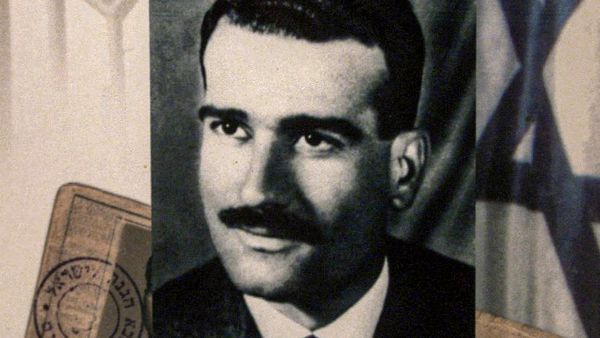ALBAWABA – Israel’s Mossad intelligence agency has revealed it successfully retrieved the full official archive of legendary Israeli spy Eli Cohen from Damascus to Tel Aviv in a covert operation carried out in coordination with a foreign intelligence ally. The announcement came just days before the 60th anniversary of Cohen’s execution in Syria in 1965.
According to a statement issued by the Israeli Prime Minister’s Office on behalf of Mossad, the archive includes more than 2,500 items — comprising documents, photographs, personal belongings, and intelligence material that had been preserved by Syrian security services since Cohen’s arrest and execution.
Historic Spy Files Unveiled for the First Time
Among the items recovered are Cohen’s handwritten will, audio recordings from his interrogation, letters exchanged with family members, and numerous personal effects — many of which are being revealed to the public for the first time.
The collection also features intelligence materials tied to Cohen’s operations inside Syria, including missions to monitor military facilities, forged passports and documents, and original court records from his 1965 trial and execution order.
Mossad confirmed that the archive contains photographs of Cohen alongside Syrian generals, military officers, and high-ranking officials — offering a rare look into the spy’s deep infiltration of the Syrian regime.
Uncovering Cohen’s Final Days
The operation is part of a wider Israeli effort to recover details about the final fate and burial location of Eli Cohen, whose remains were never returned. Among the retrieved items were keys to his Damascus apartment and documentation used during his covert missions.
Also recovered was a copy of the original court ruling that sentenced Cohen to death, which included authorization for Rabbi Nissim Andibo, the then-head of Damascus’s Jewish community, to accompany him in his final moments according to Jewish tradition.
Personal Touches and Symbolic Importance
One of the most symbolic discoveries in the archive was a large orange folder labeled “Nadia Cohen” — Eli Cohen’s wife. According to Mossad, the file revealed the Syrian regime had monitored her efforts to secure her husband’s release, including letters she had sent to global leaders and the Syrian president at the time.
The Israeli Prime Minister and Mossad Director David Barnea both praised the mission, highlighting its dual importance — both as a significant intelligence gain and a symbolic act of national remembrance. They emphasized Israel’s continued commitment to bringing home its missing operatives and preserving the legacy of those who served in its covert ranks.








![Turkish series "Ask-ı Memnu" [Forbidden Love]. Turkish series "Ask-ı Memnu" [Forbidden Love].](/sites/default/files/styles/d02_traditional/public/2026-02/%D8%A3%D8%A8%D8%B7%D8%A7%D9%84-%D9%85%D8%B3%D9%84%D8%B3%D9%84-%D8%A7%D9%84%D8%B9%D8%B4%D9%82-%D8%A7%D9%84%D9%85%D9%85%D9%86%D9%88%D8%B9.jpg?h=c673cd1c&itok=nhq8-5rH)

